
Limbe: The Jewel of the Atlantic Coast
Nestled along the Atlantic coast, Limbe is a picturesque seaside town in Cameroon that promises a unique blend of natural beauty, rich history, and vibrant culture. Known for its black sand beaches, the town offers a tranquil escape from the hustle and bustle of city life. The volcanic sands, a result of Mount Cameroon’s ancient eruptions, provide a stunning contrast to the lush green landscapes and the azure waters of the Gulf of Guinea. Limbe is also home to the Limbe Botanic Garden, one of the oldest botanical gardens in Africa. Established in 1892, it offers a serene environment to explore a diverse collection of plants, including exotic species and medicinal plants used by local communities. The garden is a haven for bird watchers and those looking to enjoy a peaceful stroll amidst nature. For wildlife enthusiasts, the Limbe Wildlife Centre is a must-visit. This sanctuary rehabilitates rescued primates and other animals, offering visitors a chance to see gorillas, chimpanzees, and other species up close. The center’s efforts in conservation and education make it a significant stop for anyone interested in wildlife preservation. Limbe’s cultural tapestry is equally captivating. The local markets bustle with activity, offering a taste of authentic Cameroonian cuisine and crafts. The town’s friendly residents are always eager to share their traditions and stories, making every interaction a memorable experience. Whether you are exploring the historic sites, relaxing on the beach, or engaging with the local culture, Limbe promises a fulfilling and enriching visit.
Local tips in Limbe
- Visit the Limbe Botanic Garden early in the morning for the best experience and to avoid the midday heat.
- Wear comfortable shoes for exploring the town and its natural attractions, as some areas can be rugged.
- Try local dishes such as grilled fish and plantains at the seaside restaurants for an authentic culinary experience.
- Carry sunscreen and insect repellent, especially if you plan to spend time outdoors.
- Visit the Limbe Wildlife Centre in the late afternoon when the animals are more active.
Limbe: The Jewel of the Atlantic Coast
Nestled along the Atlantic coast, Limbe is a picturesque seaside town in Cameroon that promises a unique blend of natural beauty, rich history, and vibrant culture. Known for its black sand beaches, the town offers a tranquil escape from the hustle and bustle of city life. The volcanic sands, a result of Mount Cameroon’s ancient eruptions, provide a stunning contrast to the lush green landscapes and the azure waters of the Gulf of Guinea. Limbe is also home to the Limbe Botanic Garden, one of the oldest botanical gardens in Africa. Established in 1892, it offers a serene environment to explore a diverse collection of plants, including exotic species and medicinal plants used by local communities. The garden is a haven for bird watchers and those looking to enjoy a peaceful stroll amidst nature. For wildlife enthusiasts, the Limbe Wildlife Centre is a must-visit. This sanctuary rehabilitates rescued primates and other animals, offering visitors a chance to see gorillas, chimpanzees, and other species up close. The center’s efforts in conservation and education make it a significant stop for anyone interested in wildlife preservation. Limbe’s cultural tapestry is equally captivating. The local markets bustle with activity, offering a taste of authentic Cameroonian cuisine and crafts. The town’s friendly residents are always eager to share their traditions and stories, making every interaction a memorable experience. Whether you are exploring the historic sites, relaxing on the beach, or engaging with the local culture, Limbe promises a fulfilling and enriching visit.
When is the best time to go to Limbe?
Iconic landmarks you can’t miss
Hotel Seme Beach Resort& Spa
Escape to Hotel Seme Beach Resort & Spa in Limbe, Cameroon, for a tranquil coastal getaway with stunning views and rejuvenating amenities.
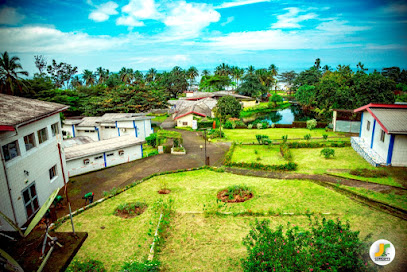
Fini Hotel Limbe
Experience coastal charm and comfort at Fini Hotel Limbe, your gateway to exploring the beauty and culture of Limbe, Cameroon.

Limbe Wildlife Centre
Discover Cameroon's wildlife at Limbe Wildlife Centre: rescue, rehabilitation, and conservation in action. Open six days a week!
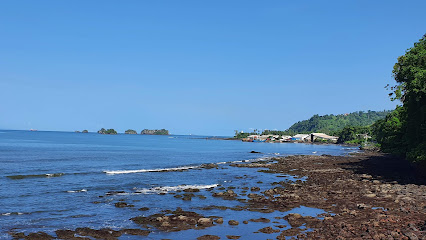
Limbe Botanic Garden
Discover Cameroon's botanical treasures at Limbe Botanic Garden, a historic oasis of diverse flora, conservation, and tranquil beauty by Mount Cameroon.
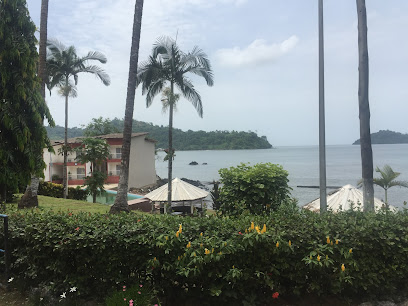
The Golden Jubilee Monument
Commemorating Cameroon's reunification, this iconic monument in Buea symbolizes unity, heritage, and the nation's journey towards progress.
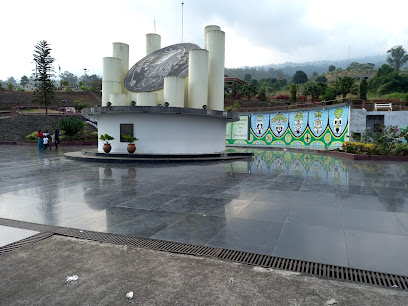
Park Hotel Miramar
Tranquil coastal hotel near Limbe's Botanic Garden, offering a serene base for exploring Cameroon's natural beauty.

Savoy PALMZ Hotel
Experience luxury and comfort at Savoy PALMZ Hotel in Limbe, Cameroon, with stunning views and exceptional service.
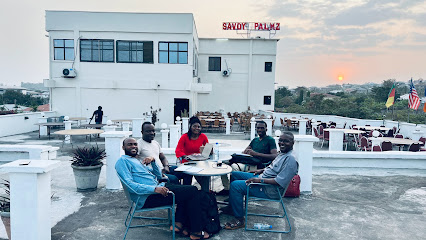
Holiday Inn Resort
Experience comfort and convenience at Holiday Inn Resort Limbe, your gateway to Cameroon's coastal charm and natural attractions.

Musango Beach Hotel
Experience tranquility at Musango Beach Hotel in Limbe, Cameroon, offering oceanfront relaxation and access to local attractions.
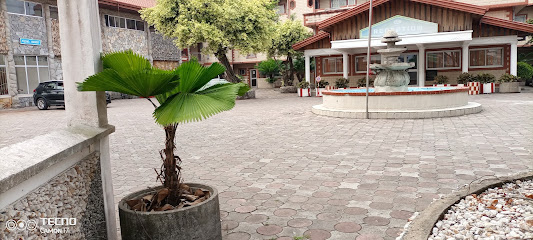
Marcsons Hotels and Resorts
Experience comfort and elegance at Marcsons Hotels and Resorts in Limbe, Cameroon. Relax by the pool, explore local attractions, and enjoy exceptional service.

Victoria Guest House Hotel
Experience comfort and convenience at Victoria Guest House, your gateway to exploring the beautiful coastal city of Limbe, Cameroon.

Trinity Hotel Limbe
Experience coastal charm and comfort at Trinity Hotel Limbe, your gateway to exploring the beauty and culture of Cameroon's seaside city.
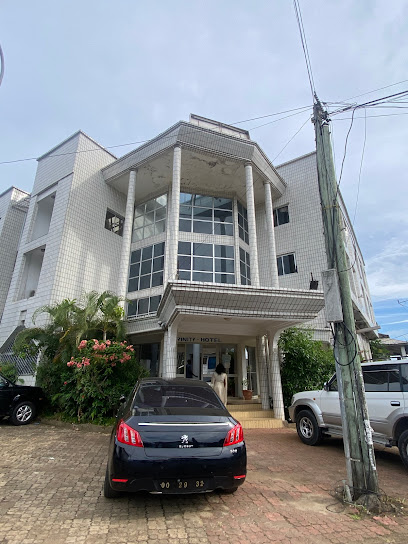
The Splendeur, Hotels & Resorts
Experience coastal charm and exceptional hospitality at The Splendeur, Hotels & Resorts in Limbe, Cameroon, with stunning ocean views and luxurious accommodations.
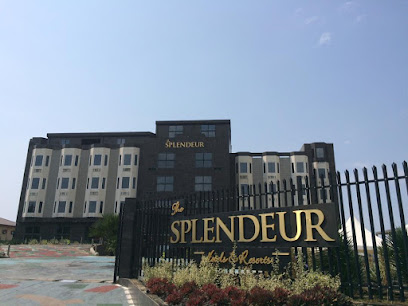
ARNE's Cafe
Dine amidst nature's beauty at ARNE's Cafe, a culinary gem inside Limbe Wildlife Centre. Open daily, offering local and international flavors.
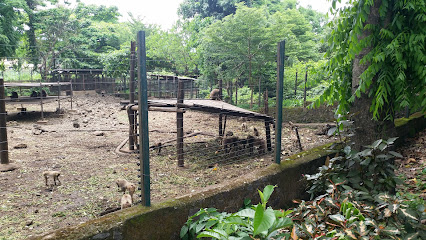
Down beach
Experience the vibrant culture and scenic beauty of Limbe's Down Beach, a coastal haven with black sands and rich history.
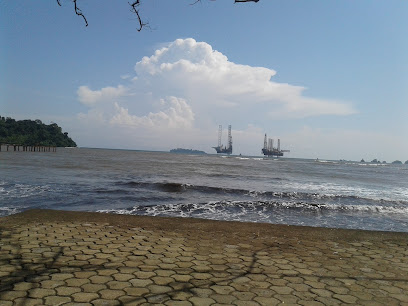
Essential places to dine
Big Bite
Discover delightful flavors at Big Bite in Limbe - where coastal charm meets delicious cuisine.
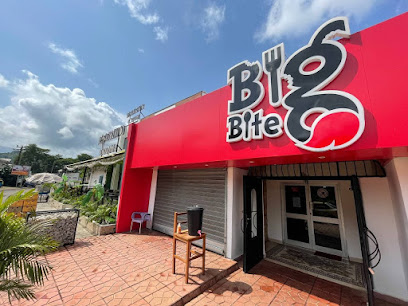
Bota S.S. Club
Experience authentic Cameroonian flavors at Bota S.S. Club in Limbe – where culinary delights meet vibrant atmosphere.
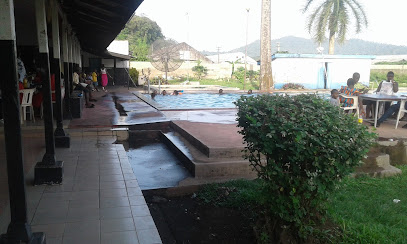
BIGGIE CHOPS
Discover delightful local and international cuisines at Biggie Chops in Limbe - a must-visit restaurant for every traveler.
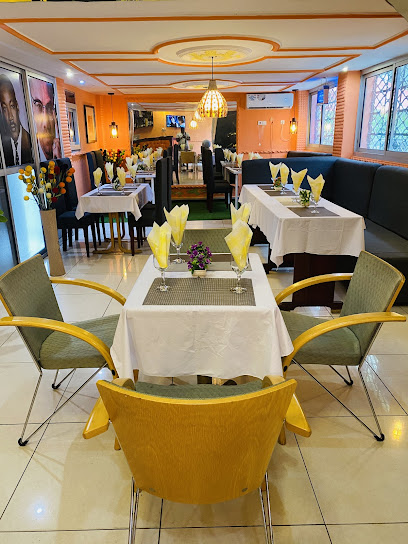
ARNE's Cafe
Experience the rich flavors of Cameroonian cuisine at ARNE's Cafe in Limbe - where every meal tells a story.
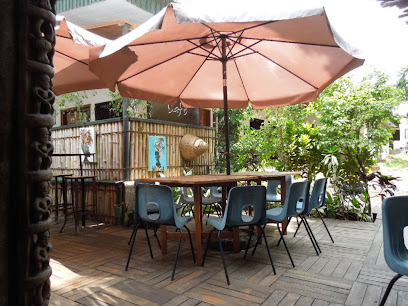
Abane & sons Corner
Discover authentic Cameroonian cuisine at Abane & Sons Corner in Limbe - where every meal tells a story.
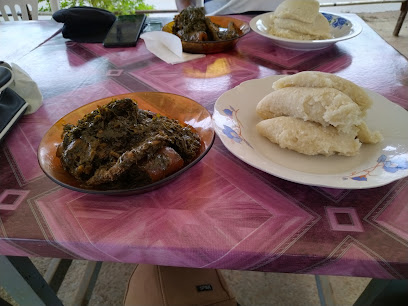
DADA Restaurant
Discover DADA Restaurant in Limbe - where local flavors meet international cuisine in a warm and welcoming atmosphere.
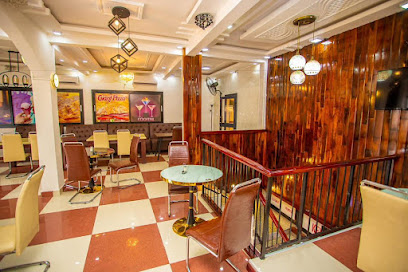
The Pride Restaurant LA Cascade
Experience authentic Cameroonian cuisine at The Pride Restaurant LA Cascade, where local flavors meet international flair in the heart of Limbe.
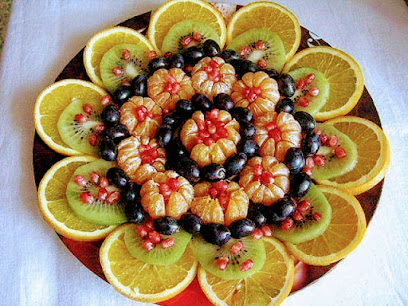
Paradise Of Taste
Experience Limbe's culinary treasures at Paradise Of Taste - where local flavors meet global cuisine in a warm setting.
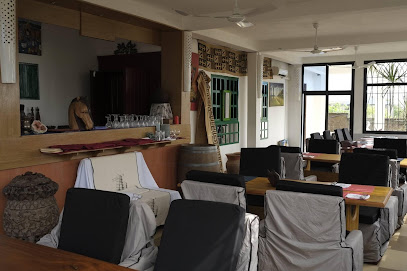
The Dorade restaurant
Experience exquisite seafood dining at The Dorade Restaurant in Limbe - where local flavors meet vibrant ambiance.
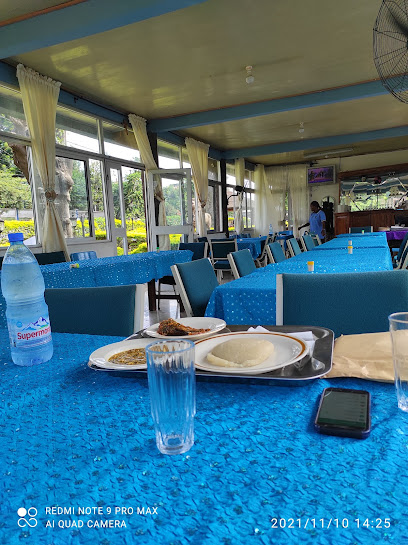
Restaurant Municipal
Experience the rich flavors of Cameroon at Restaurant Municipal in Limbe - where local ingredients meet culinary creativity.
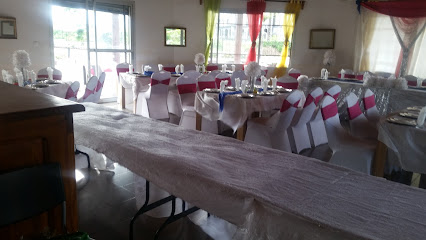
Kan's Flavors Restaurant
Discover authentic Cameroonian cuisine at Kan's Flavors Restaurant in Limbe - where every meal tells a story.
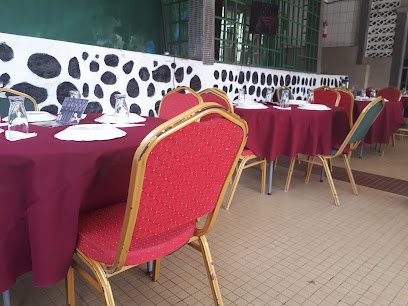
Emma's Delicious Bites
Experience the vibrant flavors of Cameroon at Emma's Delicious Bites in Limbe – where every meal tells a story.
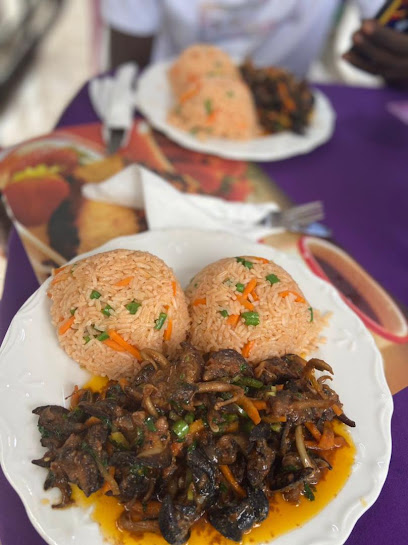
Kitchen Glory
Experience the flavors of Cameroon at Kitchen Glory – where local cuisine meets warm hospitality in Limbe.
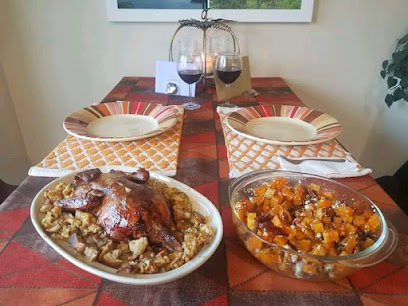
The LK Restaurant
Discover authentic Cameroonian cuisine at The LK Restaurant in Limbe – where fresh ingredients meet warm hospitality.
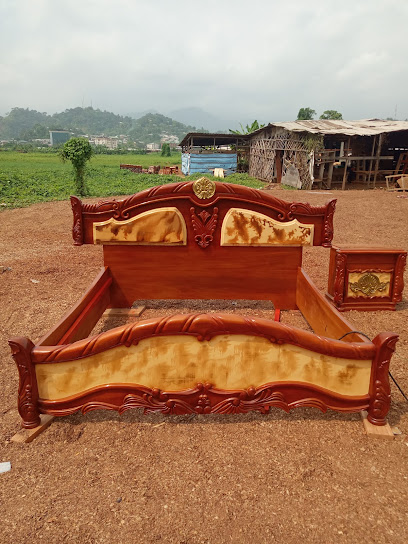
Randy's New World Restaurant
Discover authentic Cameroonian cuisine at Randy's New World Restaurant in Limbe - a must-visit culinary gem for every traveler.
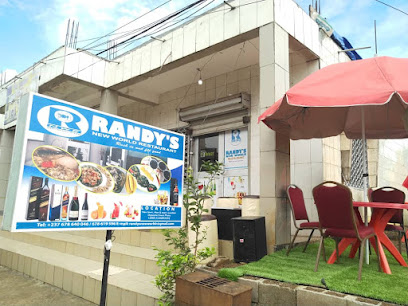
Markets, malls and hidden boutiques
Easyshop
Discover Easyshop in Limbe: A vibrant supermarket offering fresh produce, snacks, and essentials for a delightful shopping experience.
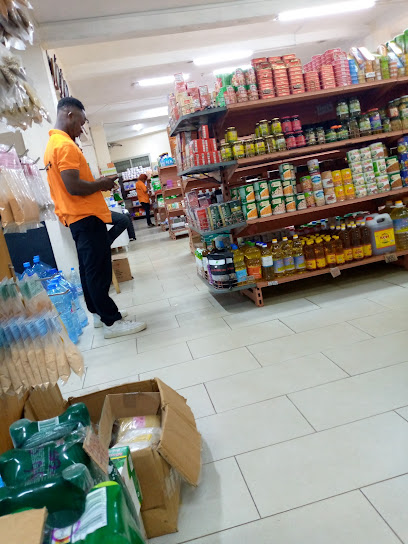
ROMIS
Experience the vibrant shopping and cultural hub of ROMIS in Limbe, Cameroon, featuring diverse retail options and local events.
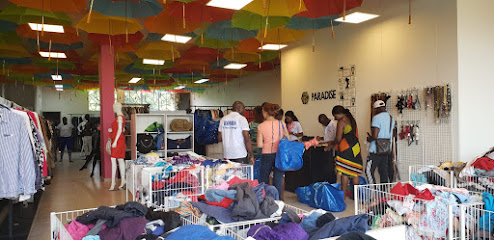
PAPER FASHION
Discover unique fashion pieces at PAPER FASHION in Limbe, where style meets local culture in a vibrant shopping experience.
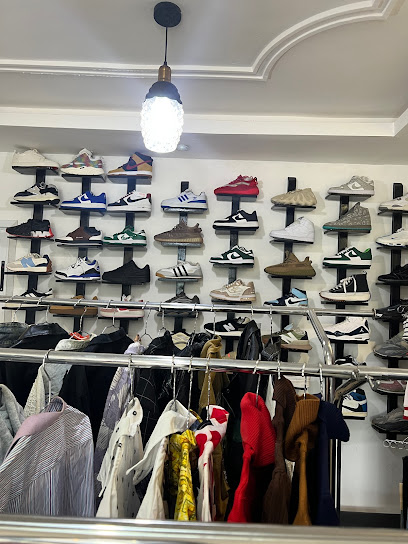
KINGS COLLECTIONS
Discover cutting-edge electronics and delightful appliances at Kings Collections, nestled in the scenic Gardens of Limbe, Cameroon.
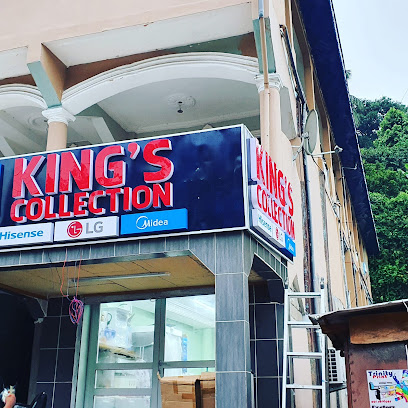
Aunty love's Place of Grace Shopping Center
Experience the vibrant shopping culture at Aunty Love's Place of Grace Shopping Center, a top supermarket in Limbe offering local and international products.
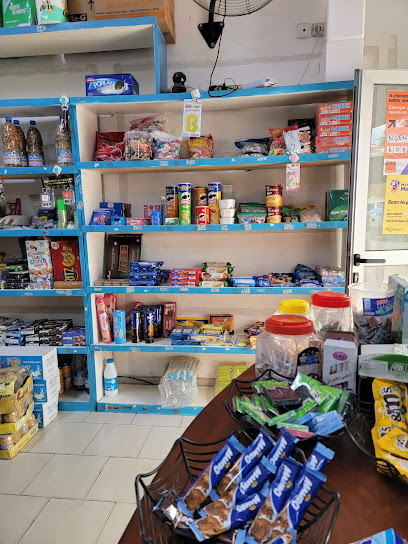
Main garage old market Limbe
Experience the heart of Limbe at the Main Garage Old Market, where culture meets commerce in a vibrant shopping atmosphere.
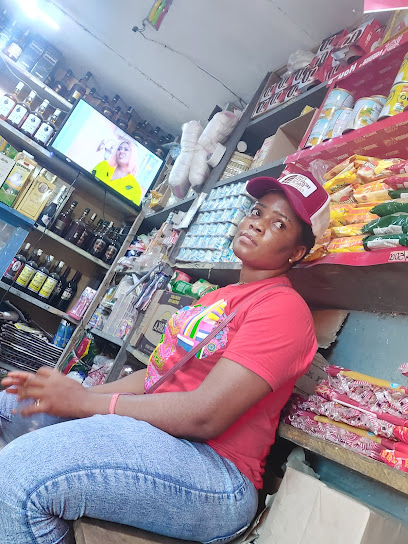
Limbe Wine and Food Shop
Explore Limbe's finest selection of wines and gourmet foods at Limbe Wine and Food Shop, a culinary haven for every visitor.
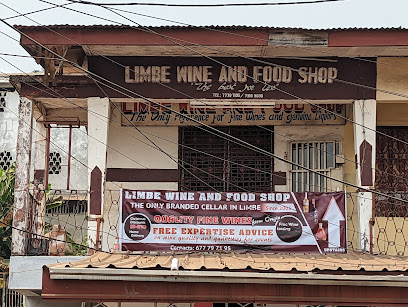
Lancement shopping Centre
Explore the Lancement Shopping Centre in Limbe for an authentic shopping experience that blends local culture with a vibrant atmosphere.
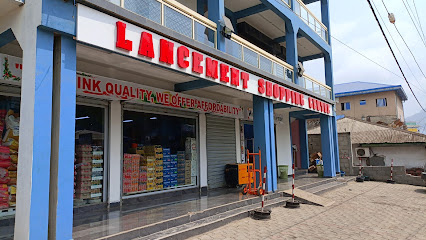
Dom's Ribbon Art
Explore Dom's Ribbon Art in Limbe, where handcrafted ribbon accessories blend creativity and culture, perfect for unique gifts and personal treasures.

Serabel Fashion
Experience the charm of Limbe through fashion at Serabel Fashion, where style meets quality in a delightful shopping atmosphere.
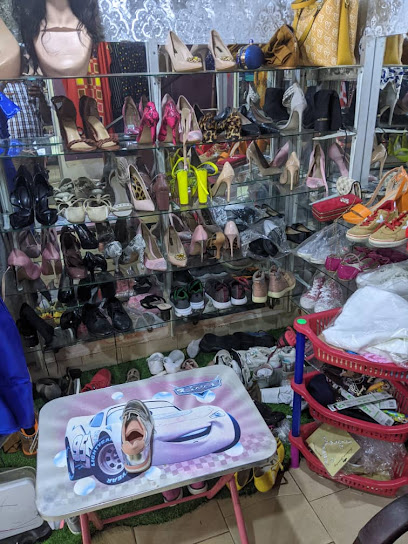
The Bendes
Explore unique local crafts and home decor at The Bendes, a charming home goods store in Limbe, Cameroon, perfect for finding memorable gifts.

The Runway
Explore The Runway in Limbe for unique fashion accessories that embody Cameroon's vibrant culture and style.
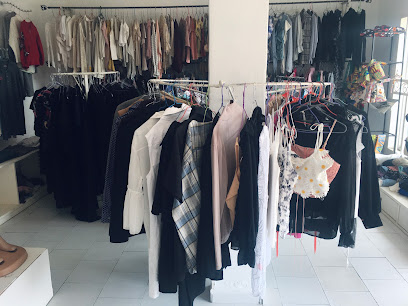
Elizz Adams Fashion
Explore the vibrant fashion scene at Elizz Adams Fashion in Limbe, Cameroon, where quality meets style in every piece.

Kay-Boo-Ki
Discover Kay-Boo-Ki in Limbe, the ultimate baby store offering quality essentials and exceptional service for discerning parents.
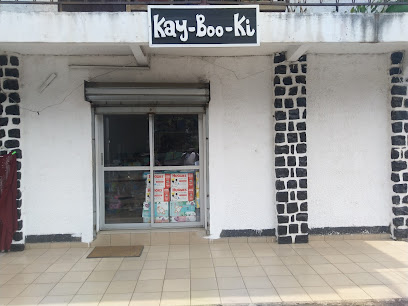
Provision Store
Explore local flavors and vibrant culture at Provision Store in Limbe, Cameroon, where essential goods meet authentic experiences.

Essential bars & hidden hideouts
Bota S.S. Club
Experience the vibrant flavors of Cameroon at Bota S.S. Club in Limbe, a restaurant that brings local cuisine to life.
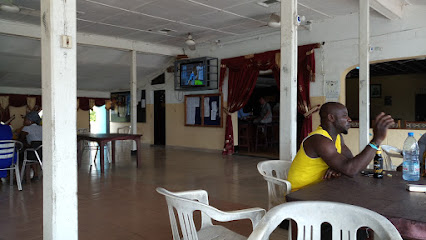
BIGGIE CHOPS
Discover the culinary delights of BIGGIE CHOPS in Limbe, where local flavors meet international cuisine in a vibrant dining atmosphere.
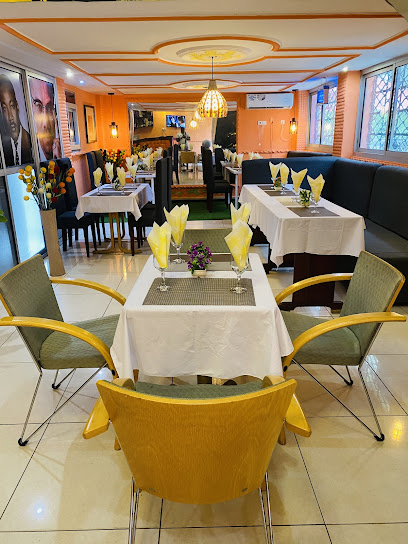
Black and White Limbe
Discover the vibrant nightlife and exquisite dining at Black and White Limbe, a premier lounge and night club in the heart of Limbe.
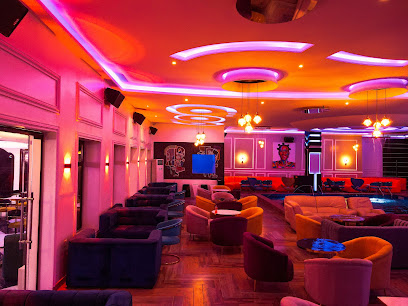
ARNE's Cafe
Experience the vibrant flavors of Cameroon at ARNE's Cafe, a local gem in Limbe perfect for food lovers and wildlife enthusiasts.
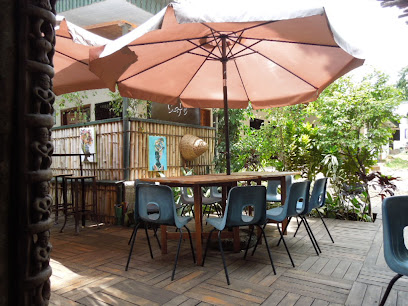
Salento Lounge Limbe
Experience the vibrant nightlife at Salento Lounge Limbe, where relaxation meets entertainment in the heart of Cameroon.
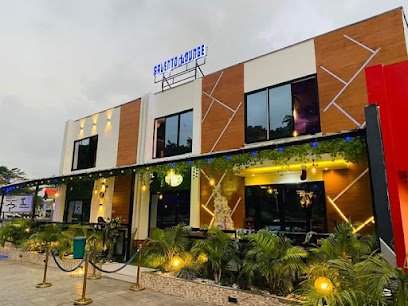
Apple Night Club
Discover the vibrant nightlife at Apple Night Club in Limbe, where electrifying music meets an energetic atmosphere for unforgettable nights.
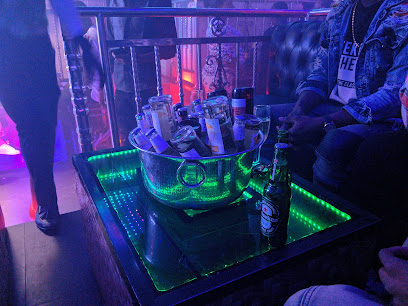
WhatsApp Snack Bar
Experience the vibrant atmosphere at WhatsApp Snack Bar in Limbola, Limbe, where great drinks and friendly service create unforgettable moments.
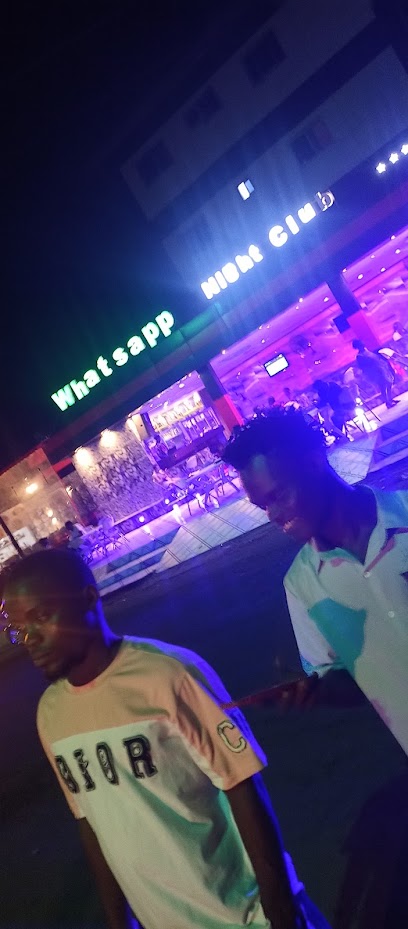
Bamboo Bar Busumbu
Experience the vibrant atmosphere and stunning views at Bamboo Bar Busumbu, Limbe's ultimate destination for relaxation and socializing.

VERONA LOUNGE
Experience the vibrant atmosphere of Verona Lounge in Limbe, a perfect spot for relaxation, local drinks, and lively entertainment.
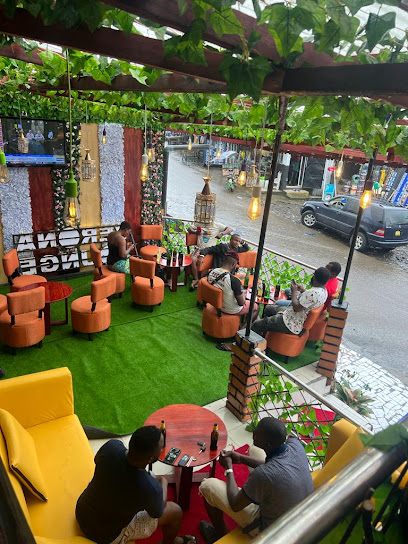
Ekowest LaClass Limbe
Experience the taste of Limbe at Ekowest LaClass, where local flavors and grilling perfection come together in a breathtaking coastal setting.
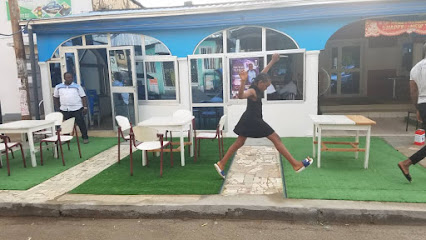
Botanic Garden Restaurant, Limbe
Discover the serene beauty of Botanic Garden Restaurant in Limbe, where exquisite local cuisine meets breathtaking sea views in a lush, relaxing setting.
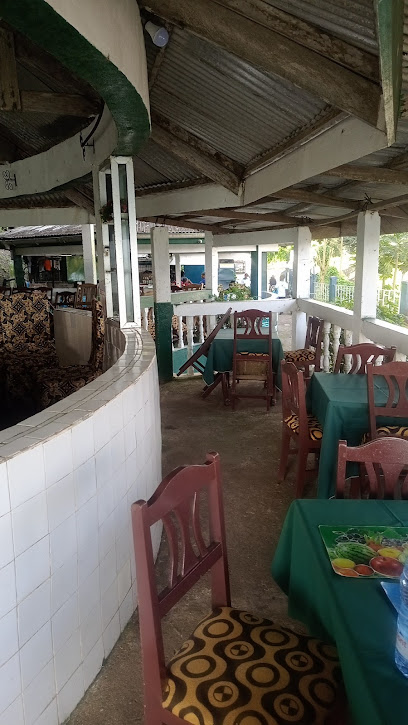
The Legends Lounge. Snack Bar Restaurant
Discover the vibrant flavors and relaxing ambiance of The Legends Lounge in Limbe, a must-visit snack bar and restaurant for every traveler.
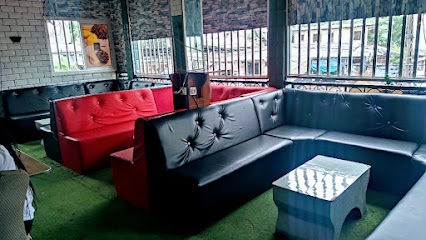
BitCoin Bar
Experience the lively nightlife and innovative cocktails at BitCoin Bar in Limbe, a unique fusion of local culture and modern vibes.
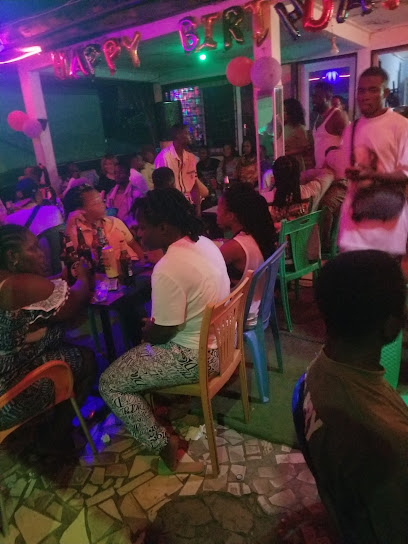
Bourbon Clique
Discover Bourbon Clique in Limbe - an exquisite bar offering a vast selection of wines and whiskies in a welcoming atmosphere.
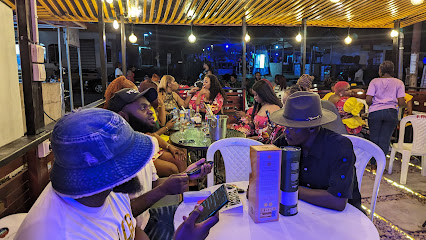
Local Phrases
-
- HelloSawa
[Sa-wa] - GoodbyeKu jia
[Ku ji-a] - YesEya
[E-ya] - NoMba
[Mba] - Please/You're welcomeMola
[Mo-la] - Thank youNa nde
[Na N-de] - Excuse me/SorryNjoka
[Njo-ka] - How are you?Wuna dey?
[Wu-na de-y?] - Fine. And you?Na njangi. Wuna?
[Na n-ja-ngi. Wu-na?] - Do you speak English?Wuna sabi English?
[Wu-na sa-bi English?] - I don't understandA no siam
[A no si-am]
- HelloSawa
-
- I'd like to see the menu, pleaseNa fain plenti, mola
[Na fain ple-nti, mo-la] - I don't eat meatA no di chop nyama
[A no di chop nya-ma] - Cheers!Bless
[Bless] - I would like to pay, pleaseNa fain pay, mola
[Na fain pay, mo-la]
- I'd like to see the menu, pleaseNa fain plenti, mola
-
- Help!Nyi
[Ny-i] - Go away!Waka
[Wa-ka] - Call the Police!Na fain call polis
[Na fain call po-lis] - Call a doctor!Na fain call dokita
[Na fain call do-ki-ta] - I'm lostA lost
[A lost] - I'm illA di sick
[A di sick]
- Help!Nyi
-
- I'd like to buy...Na fain buy...
[Na fain buy...] - I'm just lookingA di waka pekin
[A di wa-ka pe-kin] - How much is it?E di costam na how moch?
[E di co-stam na how mo-ch?] - That's too expensiveNa too much
[Na too much] - Can you lower the price?Wuna fit reduce the price?
[Wu-na fit re-duce the price?]
- I'd like to buy...Na fain buy...
-
- What time is it?Na how mami?
[Na how ma-mi?] - It's one o'clockNa one o'clock
[Na one o'clock] - Half past (10)Half past ten
[Half past ten] - MorningMornin
[Mor-nin] - AfternoonAftanun
[Af-ta-nun] - EveningIvenin
[I-ve-nin] - YesterdayYeside
[Ye-si-de] - Today2day
[2-day] - Tomorrow2moro
[2-mo-ro] - 11
[1] - 22
[2] - 33
[3] - 44
[4] - 55
[5] - 66
[6] - 77
[7] - 88
[8] - 99
[9] - 1010
[10]
- What time is it?Na how mami?
-
- Where's a/the...?Wey...?
[Wey...?] - What's the address?Na which sidong?
[Na which si-dong?] - Can you show me (on the map)?Wuna fit show mi for map?
[Wu-na fit show mi for map?] - When's the next (bus)?Na when di next (bus)?
[Na when di next (bus)?] - A ticket (to ....)A tiket go ...
[A ti-ket go ...]
- Where's a/the...?Wey...?
History of Limbe
-
Limbe was originally named Victoria, after Queen Victoria of England. The town was founded on December 28, 1858, by Alfred Saker, a British missionary. Saker and his team established a settlement at the foot of Mount Cameroon, which would later become a significant port and trade center.
-
In 1884, Limbe, like the rest of Cameroon, came under German colonial rule. The Germans renamed the town to 'Victoria' and started to develop it as an important administrative and commercial hub. They built roads, schools, and hospitals, and the town began to grow rapidly.
-
After Germany's defeat in World War I, Cameroon was divided between France and Britain. Limbe, as part of British Cameroon, saw significant changes. The British continued to develop the town's infrastructure, making it a key port and administrative center in the region.
-
Cameroon gained independence from colonial rule in 1961. In 1982, the town of Victoria was officially renamed Limbe, reflecting a move towards reclaiming local identity and heritage. The name 'Limbe' is derived from 'Limbi,' a local word meaning 'a place of abundance and prosperity.'
-
Limbe is known for its rich cultural diversity. The town is home to different ethnic groups, including the Bakweri, who are indigenous to the area. Cultural festivals, traditional dances, and local cuisine are integral to the town's vibrant cultural scene.
-
Established in 1892 by the Germans, the Limbe Botanic Garden is one of the oldest in Africa. It was initially set up to develop and test new plant species for agricultural use. Today, it serves as a center for botanical research, conservation, and education, attracting visitors from around the world.
-
The Limbe Wildlife Centre, established in 1993, is a sanctuary for rescued and endangered primates and other wildlife. It plays a crucial role in conservation and education, offering visitors a chance to learn about Cameroon's rich biodiversity and efforts to protect it.
-
Mount Cameroon, also known as 'Fako,' is the highest mountain in West Africa and a significant landmark near Limbe. The mountain attracts hikers and tourists from around the world, contributing to Limbe's reputation as a key destination for eco-tourism and adventure travel.
Limbe Essentials
-
Limbe, located in the Southwest Region of Cameroon, can be accessed via the Douala International Airport, which is approximately 75 kilometers away. From Douala, you can hire a taxi or take a bus to Limbe. The journey by road typically takes around 1.5 to 2 hours. Alternatively, you can use a private car service for a more comfortable and direct trip.
-
Once in Limbe, you can get around the city using local taxis, which are the most common form of transportation. Mototaxis are also available for shorter distances. For a more scenic and leisurely exploration, consider renting a bicycle or walking, especially along the coastline. Car rentals are available for those who prefer to drive themselves.
-
The official currency in Cameroon is the Central African CFA Franc (XAF). Credit cards are accepted in some hotels and larger restaurants, but it is advisable to carry cash for smaller establishments and markets. ATMs are available in Limbe, but it is recommended to withdraw sufficient cash in Douala before traveling.
-
Limbe is generally safe for tourists, but standard precautions should always be taken. Avoid walking alone at night, particularly in poorly lit areas. Be cautious of pickpockets in crowded places. Areas like Down Beach can get quite busy, so keep an eye on your belongings. It is advisable to avoid isolated areas and always stay aware of your surroundings.
-
In case of emergency, dial 117 for police assistance and 112 for medical emergencies. Limbe has a few medical facilities, including the Limbe Regional Hospital. It is recommended to have travel insurance that covers medical emergencies. Pharmacies are available for minor health issues and over-the-counter medications.
-
Fashion: Do dress modestly, especially when visiting religious sites. Avoid wearing overly revealing clothing. Religion: Do respect local customs and traditions. Public Transport: Do be respectful and give up your seat to elderly passengers. Don't eat or drink on public transport. Greetings: Do greet people with a handshake and a warm smile. Eating & Drinking: Do try local delicacies and accept food offerings graciously. Don't refuse hospitality, as it is considered impolite.
-
To experience Limbe like a local, visit the Limbe Botanical Garden, a historic site with beautiful flora. Spend time at Down Beach, where you can interact with local fishermen. Don't miss the Limbe Wildlife Centre, which focuses on the conservation of primates. Engage with locals, who are often friendly and willing to share insights about the city's history and culture. For a unique culinary experience, try the fresh seafood at local eateries.
Trending Landmark in Limbe
-
Hotel Seme Beach Resort& Spa
-
Fini Hotel Limbe
-
Limbe Wildlife Centre
-
Limbe Botanic Garden
-
The Golden Jubilee Monument
-
Park Hotel Miramar
-
Savoy PALMZ Hotel
-
Holiday Inn Resort
-
Musango Beach Hotel
-
Marcsons Hotels and Resorts
-
Victoria Guest House Hotel
-
Trinity Hotel Limbe
-
The Splendeur, Hotels & Resorts
-
ARNE's Cafe
-
Down beach
Nearby Cities to Limbe
-
Things To Do in Buea
-
Things To Do in Tiko
-
Things To Do in Malabo
-
Things To Do in Douala
-
Things To Do in Luba
-
Things To Do in Edea
-
Things To Do in Nkongsamba
-
Things To Do in Calabar
-
Things To Do in Kribi
-
Things To Do in Uyo
-
Things To Do in Dschang
-
Things To Do in Mamfe
-
Things To Do in Bafoussam
-
Things To Do in Mbouda
-
Things To Do in Bafia









